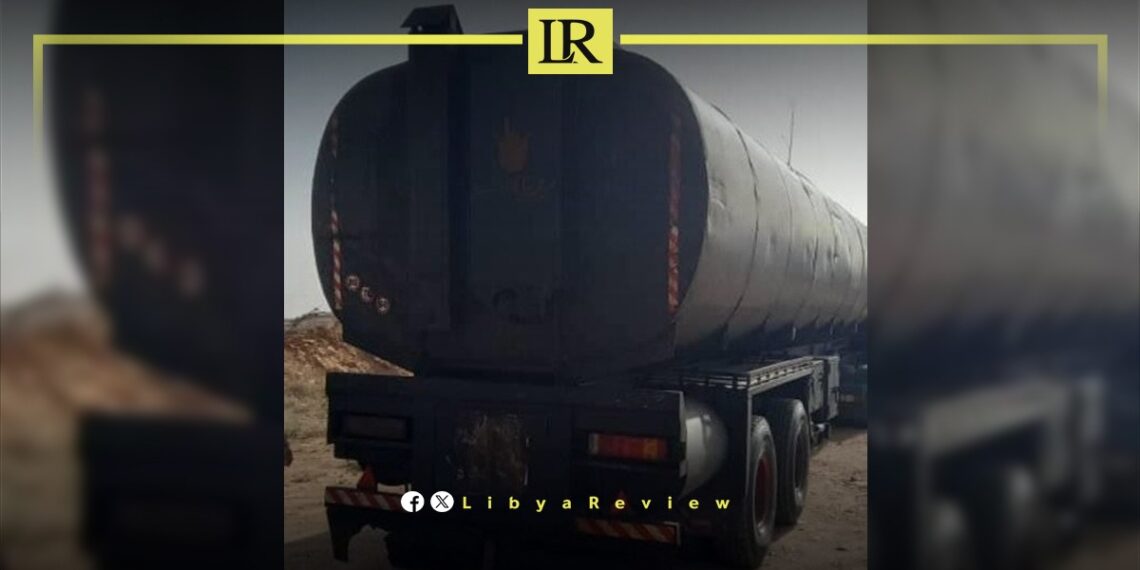Members of the Anti-Smuggling and Narcotics Department in Zintan, Libya, collaborated with the Western Military Region to seize a fuel transport truck loaded with 49,000 litres of diesel intended for smuggling.
The truck was intercepted in the Wadi Al-Hay district on the Tripoli Road before reaching the southern borders. While it carried a small amount of lubricating oil, the fuel shipment was cleverly concealed beneath the oil, according to a Customs source.
Legal measures were taken regarding the incident, and the case was referred to the Partial Corruption Prosecution in Gharyan.
Meanwhile, the Security Directorate of Al-Wahat – Jalu announced the seizure of a quantity of stored fuel inside a rented house occupied by foreigners, following information about the preparation of the quantity for smuggling.
On Wednesday evening, a security force from the General Investigation Departments, the Emergency Police, Discipline, and Traffic, all under the Security Directorate, raided the house, seizing the quantity and apprehending its residents.
The Directorate urged citizens renting houses to foreigners to monitor their tenants’ activities to prevent their homes from becoming hubs for crime in the area.
Last month, investigations and reports have shed light on the smuggling of Libyan fuel, revealing an industry that generates billions in illicit profits, involving local actors, European networks, government entities, mercenaries, and organized crime. The Times of Malta recently detailed how these operations have transformed Libyan fuel into a highly profitable business, with significant implications for tax evasion and the funding of conflicts in Libya and military activities in Ukraine.
Originally small-scale, using fishing boats for transport, the smuggling has escalated to include large ocean-going vessels, expanding the trade’s reach. The late journalist Daphne Caruana Galizia’s investigations, which identified Malta as a central hub in this operation, underscored the risks associated with exposing such networks.
The trade benefits from Libya’s fuel subsidy system, selling fuel at steep discounts and necessitating the country to import to meet domestic demand. Smuggling operations have been found to be more covert and profitable than drug or human trafficking, facilitated by the ease of forging documents to appear legitimate.


